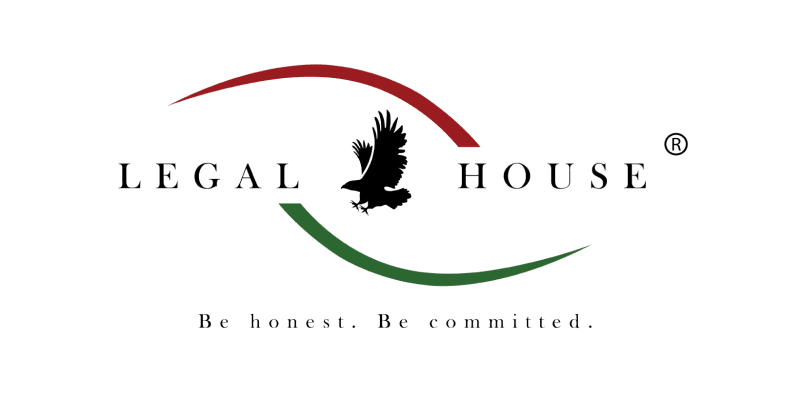Starting a new business is stressful, and there are many factors to consider. You need to make sure you get your business idea just right and are confident in the marketability of your product or service. But you also need to think about legal issues; this article will discuss common legal issues in starting a business in UAE to help new entrepreneurs protect their businesses safely.
What are the legal issues to consider when starting a business in UAE?
The UAE has a well-established and thriving economy, but there are still many challenges for foreign investors. Here we look at some of the legal issues to consider when starting a business in the UAE.
1. Choosing an entity type or legal business structure:
In order to conduct business in the UAE, you will need to register yourself as a company or an individual. The choice of entity type will depend on how much capital you have available, the nature of your business, and whether there are any restrictions on foreign ownership of certain types of companies. You can choose from four types of business entities: sole proprietorship; partnership; limited liability company (LLC). These can be further divided into branches or representative offices depending on their purpose and activities.
2. Intellectual property rights-trademarks:
Trademarking is a significant step for any business. It is a way of protecting your name and brand from being used by others. A trademark can be registered in a number of ways, such as through the Trademark Registry or through the Intellectual Property Authority (IPA). The purpose of trademarking is to protect the consumer from confusion and deception, as well as to protect the goodwill and reputation of your business. If you are selling a product or service that includes the use of another company’s trademark, there could be legal repercussions if you were not authorized to do so by that company. This could mean that you would need to stop selling your product or service altogether until things are cleared up between both parties. This is the one of most occurred legal issues in starting a business.
3. Licensing and permits:
You may need licenses from different authorities, such as the Ministry of Economy or Dubai Municipality. You’ll also need permits from other offices if your company will be doing any construction work. Some companies may require special permits if they’re providing goods or services that fall under certain categories like telecommunications, education, or healthcare. Make sure you are in compliance with local government regulations. Otherwise, you may have to pay fees or fines that could have been avoided. The cost of a license will vary depending on your business activity and the location of your business operation. but the need to have one remains constant throughout the country. If you have any questions, please contact us. We’ll be happy to help!
4. Health regulations:
Many UAE businesses are required to comply with health regulations set out by the Ministry of Health and Prevention (MOHP). These regulations cover everything from food safety to waste disposal and pest control. Some businesses may need to obtain additional licenses or approvals from other government bodies before they can begin operating legally in their chosen field.
5. Zoning laws:
The Dubai Land Department (DLD) has zoning maps that show the different types of land available for commercial use. These maps also indicate where each type of land can be used. The zone such as free zone, mainland, and offshore. so you must follow these zonal laws before doing business in UAE.
6. Employment law and contracts:
As an employer in Dubai, you will be subject to UAE labor law and must comply with certain employment regulations such as paying minimum wages, providing paid holidays and sick leave, etc. You also need to draw up an employment contract for each member of staff that clearly outlines their role within the organization, working hours, salaries, notice period and termination, etc.
7. Product liability:
Business owners are legally responsible for ensuring that the products they sell meet safety standards set by local authorities (such as the Ministry of Economy). If you sell unsafe products or make false claims about their safety, you can face fines or even jail time if someone is injured or dies from using them.
8. Insurance:
The first thing you need to do when starting a business in the UAE is to get the right insurance coverage. This includes general liability insurance, which protects against claims arising from bodily injury or property damage caused by your employees or contractors. It also includes professional indemnity insurance, which can be useful if you work as an independent contractor or consultant and want cover against claims made against you by your clients.
9. Disputes & Legal agreements:
CNDAs (Confidential and non-disclosure agreements) also need to be prepared well in advance of launching any new product or service. The NDA ensures that all information shared between parties will remain confidential both during your relationship and after it ends. Without an NDA in place prior to sharing information with potential partners or clients, you could find yourself facing lawsuits down the road if there is ever any breach of confidentiality. In this case, we can help you draft all kinds of legal agreements or commercial contracts which helps to protect your business legally. So that you can avoid disputes in business.
10. Corporate governance:
There are no specific legal requirements for corporate governance but directors must comply with their fiduciary duties under common law principles and must always act honestly and in good faith towards the company; failing to do so could result in personal liability for any losses caused by their actions.
11. Landlord and tenant laws :
When renting a property in Dubai, there are certain terms that must be included in your contract. These include the length of time you will occupy the space and whether or not you have exclusive use of the premises or if other parties have access to it as well. You should also specify if any maintenance responsibilities are shared between you and your landlord.
12. Tax and accounting legal issues :
Taxation is one area where there is little or no consistency between jurisdictions around the world. It is therefore important to consult with your accountants before making any decisions about tax planning or accounting procedures.
13. Privacy policies and terms of use :
You should have privacy policies and terms of use clearly stated on any website or social media page that is operated by your company. These will outline what personal information users must provide before using your services, how they may use these services once they have provided this information and how long we retain their data (or whether we delete it after a certain period). We recommend that you review these policies regularly to ensure they remain up-to-date with all current regulations regarding privacy policies.
How we help you:
If you’re looking to start a new business in the United Arab Emirates and need help navigating the legal system, we can help.
We understand that the UAE is a unique market and that there are many challenges that come with doing business there. Our team has years of experience working with businesses in the region, and we have the expertise necessary to assist you with any legal issues you may encounter.
Our services include:
-Advising on how to set up your company in accordance with local laws and regulations
-Identifying potential risks associated with starting your business in this country
-Managing intellectual property rights
Hurry up! Get free legal consultation today by contacting us at +971 555683294, emailing us at info@legal-house.com







Pingback: Legal Obligations of Employers and Employees in Absconding Case in Dubai